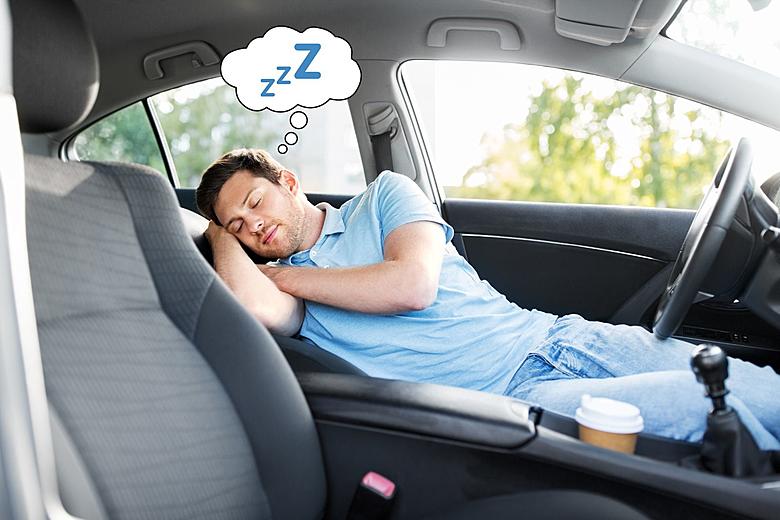Nevada, the land of dazzling casinos, vast deserts, and breathtaking natural beauty, is a popular destination for road trippers, adventurers, and outdoor enthusiasts. Whether you’re cruising down the neon-lit streets of Las Vegas or exploring the otherworldly landscapes of Death Valley National Park, Nevada offers a unique blend of excitement and exploration. However, for budget-conscious travelers or those seeking a more immersive experience with nature, car sleeping can be an attractive option. But is it legal to catch some shut-eye in your car in Nevada?
This comprehensive guide will delve into the legalities of car sleeping in Nevada, providing valuable information for anyone considering this cost-saving sleep solution. We’ll explore the relevant laws, address common concerns, and offer tips for safe and responsible car sleeping practices.
Nevada Law and Sleeping in Your Car
Unlike some states that have specific laws regarding sleeping in vehicles, Nevada doesn’t have a statute that explicitly prohibits the practice. This means that, in general, taking a nap or catching some sleep in your car on public land is not illegal.
However, there are some crucial factors to consider:
- Actual Physical Control: A key concept in Nevada’s DUI laws is “actual physical control” of a motor vehicle. If you’re found sleeping in your car with the keys readily accessible (e.g., in the ignition or the cup holder), you could be arrested on suspicion of DUI, even if the engine is off.
- Appearing Intoxicated: If law enforcement officers approach your car and suspect you’re under the influence of alcohol or drugs, they may have grounds to investigate further. This could involve sobriety tests or a breathalyzer examination. To avoid unnecessary hassle, it’s best to avoid sleeping in your car if you’ve been consuming alcohol.
Safe Sleeping Practices and Avoiding Trouble
While the general lack of a specific law against car sleeping in Nevada is good news, it’s essential to prioritize safety and responsible practices:
- Choosing Safe Locations: Public rest stops, designated campgrounds, and areas with overnight parking permitted are ideal choices. Look for well-lit areas with CCTV cameras, especially if you’re traveling solo.
- Discretion is Key: Avoid drawing unnecessary attention by keeping your car tidy and avoiding areas with a history of criminal activity. Blend in with other parked vehicles and refrain from leaving valuables in plain sight.
- Be Prepared to Answer Questions: If approached by law enforcement, remain calm, polite, and cooperative. Explain that you’re simply resting and haven’t been driving under the influence. Knowing your rights and being respectful will go a long way in avoiding unnecessary complications.
When Sleeping in Your Car Might Be Illegal
There are situations where car sleeping in Nevada can be considered illegal:
- Private Property: Sleeping on private property without permission is trespassing. This includes parking lots of businesses that are closed overnight or residential neighborhoods. Always seek permission before sleeping on private property.
- Open Container Laws: Nevada has open container laws that prohibit consuming alcohol in a vehicle on a public roadway, even if the car is parked. Consuming alcohol while parked in a rest stop parking lot could lead to a citation.
Alternatives to Car Sleeping in Nevada
While car sleeping can be a budget-friendly option, it’s not always the most comfortable or secure choice. Here are some alternative lodging options to consider in Nevada:
- Campgrounds: Nevada boasts numerous campgrounds throughout the state, offering a range of amenities from basic campsites to fully equipped RV parks with showers, laundry facilities, and even swimming pools. Campground fees are typically much lower than hotel rates, making them a great option for budget-conscious travelers. Popular Nevada campgrounds include:
* Red Rock Canyon National Conservation Area Campground (near Las Vegas)
* Valley of Fire State Park Campground (near Overton)
* Great Basin National Park Campground (near Baker)
* Lake Tahoe Nevada State Park Campgrounds (around Lake Tahoe)
- Hostels: Particularly in cities like Las Vegas and Reno, hostels offer affordable and social lodging options. Hostels typically have dorm-style rooms with bunk beds, shared kitchens, and common areas where you can meet fellow travelers. Many hostels also organize social events and activities, making them a great way to experience the local scene.
Conclusion
Nevada’s vast open spaces and adventurous spirit make it a prime destination for car-sleeping enthusiasts. However, it’s crucial to understand the legalities and prioritize safety for a smooth and enjoyable experience. Remember, the absence of a specific law against car sleeping doesn’t mean there aren’t any restrictions. Focus on responsible practices like choosing safe locations, avoiding open container violations, and keeping your car tidy to minimize interactions with law enforcement.
For maximum comfort and security, consider alternative lodging options like campgrounds or hostels. Campgrounds offer a range of amenities at affordable prices, while hostels provide a social and budget-friendly experience.
Ultimately, the decision of whether to sleep in your car in Nevada comes down to personal preference and budget constraints. By following the tips outlined in this guide, you can ensure a safe, legal, and enjoyable sleep experience, allowing you to fully embrace Nevada’s unique desert landscapes and vibrant cityscapes.



